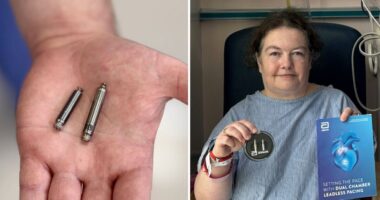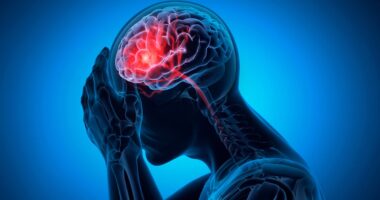While liver disease is often associated solely with excess alcohol consumption, that’s not the only trigger.
Poor dietary choices can lay the groundwork for a condition known as non-alcoholic fatty liver disease (NAFLD).
NAFLD is an umbrella term for a group of conditions triggered by a build-up of fat in the liver.
The NHS explains that it’s common in people who are overweight or obese.
On the other hand, healthy dietary tweaks could prevent or even reverse this type of liver disease. Fortunately, a nutritionist has outlined the key three changes that could do this with gusto.
Annie Guinane, registered dietitian and nutritionist, penned for The University of Chicago Medical Center: “There are no medical treatments – yet – for non-alcoholic fatty liver disease.
“So that means that eating a healthy diet and exercising regularly are the best ways to both prevent liver damage from starting or reverse liver disease once it’s in the early stages.
“We know people don’t want to feel like they’re on a ‘diet’, so we work really hard with our patients to help them focus on lifestyle changes instead, which includes a healthy diet, exercise and getting a lot of quality sleep.”
With that in mind, the nutritionist recommended the following tweaks that “might surprise you”: drink three cups of coffee per day, eat four tablespoons of olive oil a day, and follow a Mediterranean diet.
Famed for its plentiful health benefits, the Mediterranean diet combines the authentic lifestyles of people who live by the Mediterranean Sea.
It’s generally packed with vegetables, fruits, legumes, nuts, beans, cereals, grains and fish.
On the flip side, foods like poultry, eggs, cheese and yoghurt are only consumed in moderation, and sweets and red meats are saved for special occasions.
Guinane explained that the Mediterranean diet could also slash your risk of heart disease, and keep its precursors like high blood pressure and “bad” cholesterol at bay.
“That’s important because both heart disease and diabetes are strongly associated risk factors for fatty liver disease,” the dietician added.









